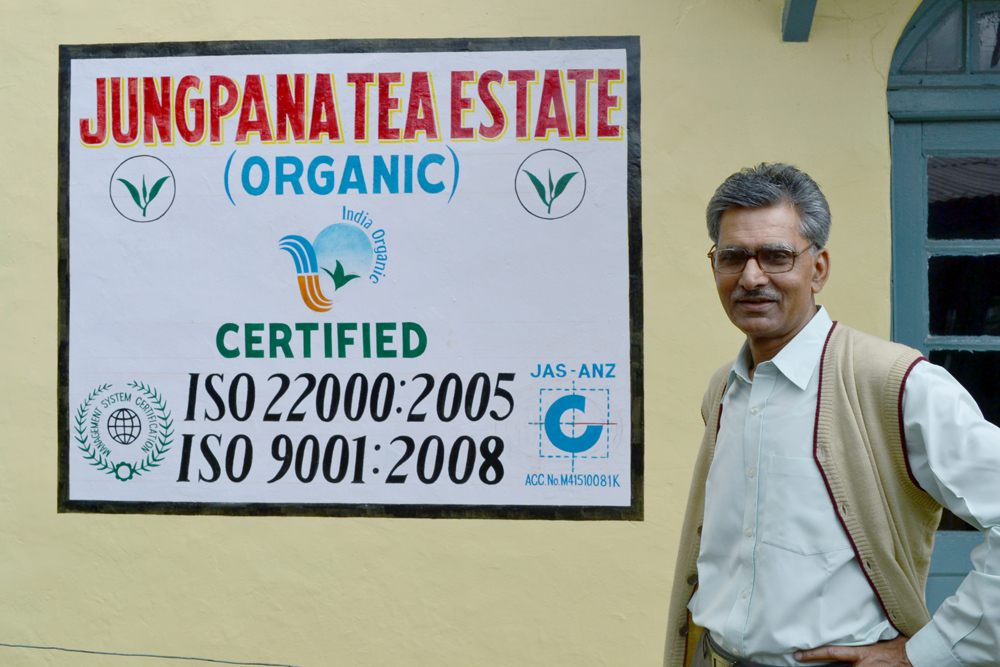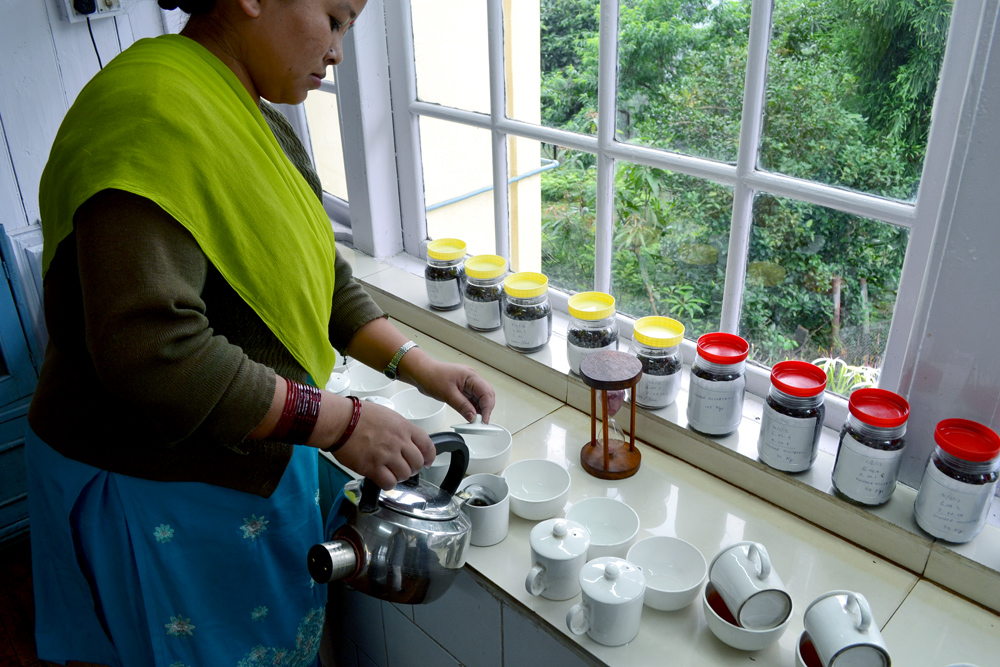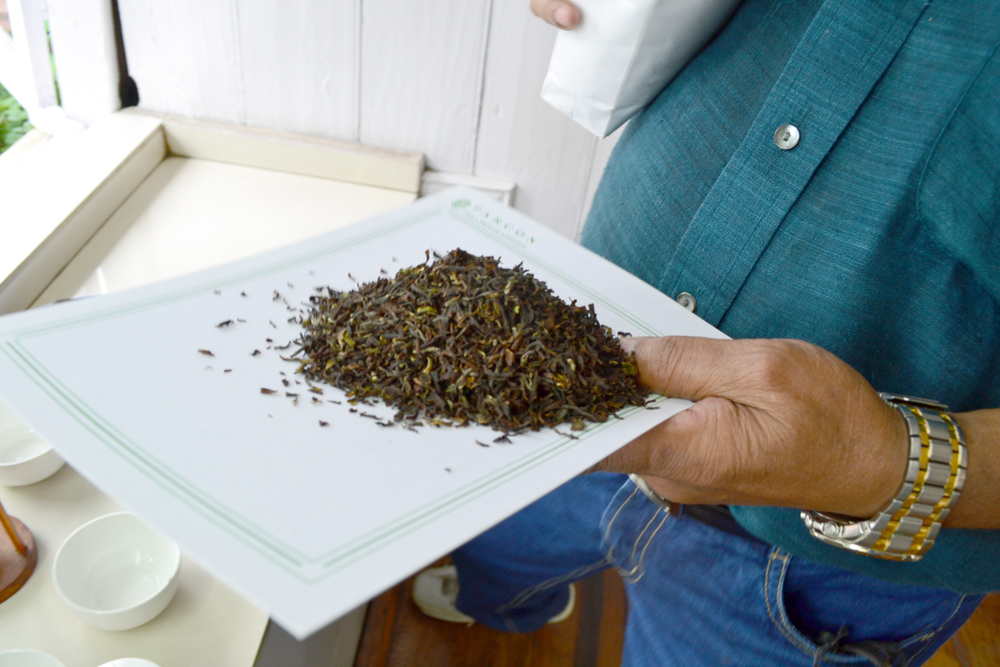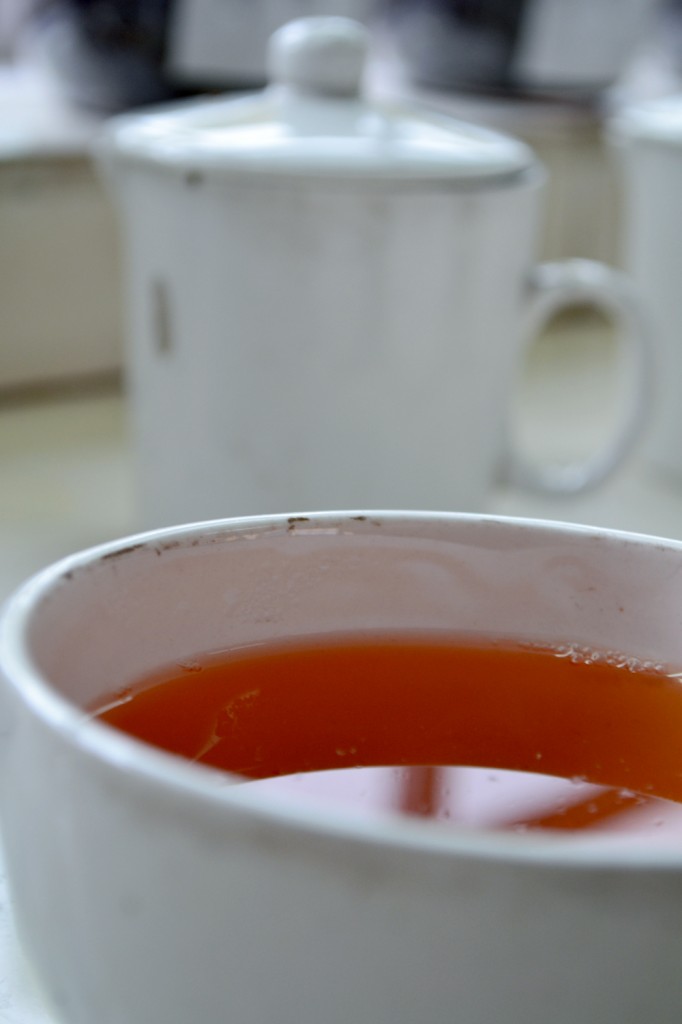Darjeeling Discovery: Junpana Tea Estate

"What is different about the Junpana tea estate, from all the other tea estates in Darjeeling?" I asked BM Mudgil (manager of Junpana). To that he replied, "You will find out when you go there and experience it."
I knew the bullet points: established in 1899, elevation 2,500-5,500 ft, moves 75 tons of tea a year, all organic and a sustainable fertilizer system consisting of cow dung and vermiculture. But nothing prepared me for the actual visit.
An unsuspecting visitor, like myself, will first be daunted by the 300-plus dilapidating stone steps. One must go up these steps to reach the tea estate. This is the only way up and all machinery and supplies are delivered on foot to the estate. It was a little sadistic, in my opinion, watching the locals carrying heavy construction pieces and sacks of potatoes up these unstable steps.

On our way to Junpana

After a few minutes of walking I noticed they had assigned a young boy to spot me just in case I slipped or fell on the wobbly rocks. I was so concentrated on getting up these stairs, that I regretfully did not take any photos.
Once the steps are dealt with, the first thing you arrive at is a beautiful tree, blessed by the gods.

I was mesmerized by the branches wrapping around each other, creating a maze that would probably look REALLY cool if you were high.

Next, they acknowledge the fact that you just walked up 300 stairs (about 40 minutes of sweating and grunting) by greeting you with a scarf they wrap around your neck.

The manager, Mr. Mudgil then showed us to the tasting room.

We were here to learn about their teas. And the best way to learn about a tea estate's teas is to taste them.


Junpana's teas were striking just from its colors. Ranging from bright yellow to green to deep auburn, the Junpana teas had some very attractive liquids.

In general, Junpana's teas had that quintessential "darjeeling" quality to them. The floral nose was amplified compared to some of the other tea estates, and some even went as far as perfumey. Most all of Junpana's tea bushes are China plants as opposed to Assam or clonals.
When tasting teas, it's all about comparison. Tasting as many similar teas side-by-side will allow the taster to determine which of the handful is the best out of all of them. Since different products are produced everyday, tastings are routine and very crucial when it comes to choosing which teas are appropriate for which markets.
First, one must inspect the dry leaf. For second flush teas, a chocolatey-brown is optimal. Many teas tend to be too black, so making sure the tea contains hints of auburn is important. Another thing to look for is the size of the leaf. The tea should not have too many broken pieces. The more whole leaves and tips, the better. Tips should look silvery.

Second, once the tea is brewed and the liquor is poured (after 5 minutes), one must smell and inspect the wet leaf. I am not an expert at all, and all I could go on was preference. Some smelled more spicy than others and I was simply trying to identify which ones I like best.

Finally, one can sip and spit the liquor. Like wine, one can slurp and breathe in and out as the liquor is held in the mouth. Spitting allows you to taste the aftertaste of the tea. And again, like wine, the longer the linger, the better.
My favorite of the bunch was the "Wonder Muscatel." Showcasing the best of "second flush" teas (harvest from late May to early June), Wonder Muscatel had virtually no hint of briskness and plenty of sweetness and buttery-ness that almost made me wonder if there was some sugar added to it.

It was clear that the folks at Junpana were very proud of the fact that their whole operation was certified organic. Getting this certification is a three-year process, involving changing machinery, constant maintenence checks by the certifying authority and assuring that the whole process -- from fertilizer to packaging -- abides by its strict rules and regulations. Junpana just received their certification last year. Congratulations!
Although a little militant in their operations, I really enjoyed the people at Junpana. They were serious and passionate about their teas and were really concerned about making the best teas for their customers.

So what ultimately set Junpana apart from the others? If I were to assign some keywords they'd be "organic" and "sadistic." And totally worth every step.


Enjoy all the posts of Darjeeling Discovery:
Goomtee Tea Estate
